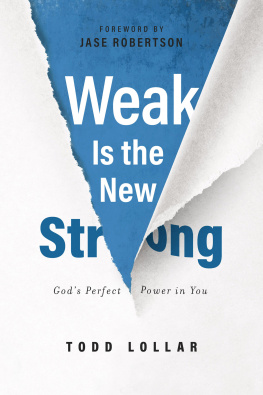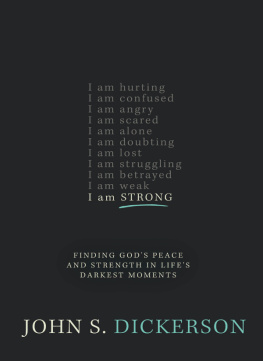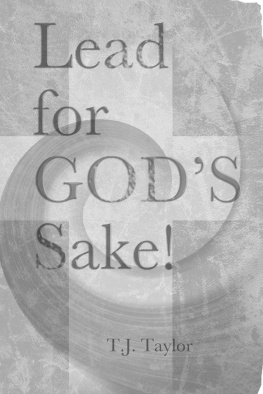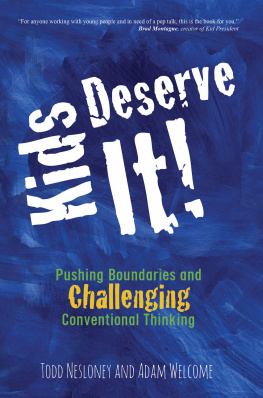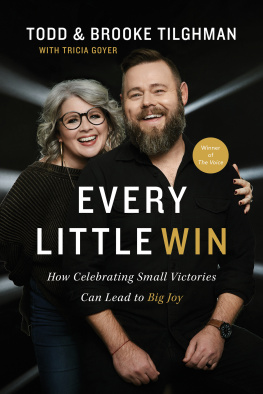I hear the Savior say
Thy strength indeed is small
Child of weakness, watch and pray
Find in Me thine all in all.
Elvina M. Hall, Jesus Paid It All
My life nearly ended just as it began.
Seconds after I was born, blue-faced and barely breathing, the doctors rushed me out of the delivery room and put me on oxygen.
While I was struggling to live, my mother pleaded with God for my life. She shed no tears of fear or hopelessness. Rather, she trusted her creator. God calmed her soul and reassured her I would live. (Years later, he would fully answer her two-part prayer on my behalf.)
Sometime that same night, they took me off oxygen. I was allowed to go home just like any other normal baby.
Except, I was anything but normal.
When I was a few months old, my mother realized something was different about my physical development. She took me to a doctor who said, Hes fine. Hes just a fat, lazy baby.
But at nine months, I couldnt hold my head up by myself. I couldnt sit alone. My mother took me to another doctor whose best guess at diagnosing me was developmental retardation. He warned my mom of the possibility that I would never walk, talk, or learn.
But I still had undiagnosed developmental issues. At eighteen months, I saw a specialist at the JD McCarty Center for Children with Developmental Disabilities in Norman, Oklahoma. Just when other almosttwo-year-olds were growing stronger and learning to walk so they could run, I was diagnosed with cerebral palsy.
My Weakness
Without knowing it, you may have met someone with cerebral palsy (CP) before. You may have met someone who seemed different, but you didnt know why and you were afraid to ask. If you dont know someone with CP, its hard to know what to say, and its twice as hard to know what their daily life is like.
Cerebral palsy is most often caused by a brain injury before, during, or right after birth. It affects a persons ability to control their muscles, but it affects each person differently and to different degrees. Some people with CP may not be able to control their left arm movements. Others may struggle to control multiple muscles, including those used for speech. Some suffer from partial to total paralysis.
The best way I can describe having CP is to imagine that each affected muscle has a mind of its own and seldom, if ever, listens to the mind in your head.
CP is non-life-threatening, but it is a life sentence. There is no earthly cureonly different therapies for physical, speech, and occupational help. CP is not a disease, but it affects everyday life. This is even more apparent in the face of obstacles such as no ramp access for a person with CP who must use a wheelchairlike me.
Cerebral palsy does not worsen with time like some neurological conditions, but it could if I chose to give up. I will always have as much CP as I do now; but through various kinds of therapy, I can lessen its effects on my daily life. In fact, I can even get better if I stay active. For instance, even though I have a speech disfluency that causes me to speak slowly and with a stutter, it was much worse when I was a child through my collegiate days.
I dont define myself through CP; but because its effects are so evident in my life, thats how most people define me: by my greatest weakness. And Ive had to live with this perception for my entire life.
Imagine being publicly defined by your greatest weakness.
Thats not such a thrilling prospect, is it?
Fighting the Misperception of Struggling with CP
Unless you know someone with cerebral palsy, daily life with CP is different than what you may think. When living with CP, these misperceptions are more detrimental than the realities.
For instance, some people believe I dont do much because I have to use a wheelchair. I chuckle when I hear thisespecially when its uttered by someone whos seen or experienced the results of my work but didnt see me actually doing the work. This misperception generally comes from older generations, whose limited notions of the potential of wheelchair-bound people are based on decades long past when people like me werent given opportunities to accomplish, achieve, and live out their calling. They seem to believe that people in wheelchairs have only two options: stay at home with Mom and Dad or live in a group home of other wheelchair-bound people. So, when they see me active and independent, its surprising.
Older generations think Im an adult whos still dependent on his parents or some caretaker. Theyre surprised when they learn I moved out of my parents house at nineteen to attend college at the University of Oklahoma. Theyre even more surprised when they hear I later earned a master's in biblical and related studies.
Following my graduate work, I moved to the Dallas-Fort Worth Metroplex, while all of my family still lived in Oklahoma. Yet because of my perceived weaknesses, people seem to believe that my family must have a major supportive role in my life. They do support me, but in the same ways that all good family members support each other: with love and helpwhen needed.
Lastly, some people believe I have low aspirations. This is frustrating for a leader who likes to think he has a great, God-given vision for seeing God transform lives throughout cities, who also pioneered and leads an expanding nonprofit organization, and whos a certified life coach.
When Im unloading my wheelchair out of my Jeep, Ive heard people exclaim, Wow! Youre out and about! or, You do well for yourself, dont you? Their eyes seem to bulge in a mixture of shock, disbelief, and pity, as if my goal for the day was just to get my wheelchair out of my Jeep! Consequently, I feel like Im sometimes not taken seriously when I talk about vision. I fear that others see my disability and automatically set the bar low on my behalf, as if I dont have lofty goals for my career, my family, and my life.
Those are my main frustrations in living with CP, and I dont begrudge people who hold misperceptions about my life. They just dont know what its like inside my mind, either because theyve never known someone like me or because they just dont have the time to talkwhich leads me to the realities of my day-to-day life.
Living with CP
I am mobilized in a wheelchair. I specifically use that phrase because I am not totally or partially paralyzed. I could walk with a cane or walker if I chose to, but I choose not to. Why? Because my calling in life is to make a difference in other peoples lives, and Ive discovered that society seems to be more accepting of someone approaching them in a wheelchair than someone whos struggling to approach them. Thats the practical reason. More personally, my desire to help others far exceeds my desire to walk. Far from being a two-wheeled straitjacket for my legs, my wheelchair frees me to do life.
Another issue I must daily deal with is my speed. Even though my physical challenges have drastically improved as Ive aged, one reality remains: Im slow. I talk slowly. I move slowly. I do not get things done even close to as fast as you do. Ive adapted, but my all-around slowness is still apparent, especially when I roll next to a friend on a walk. My gifts are much more relationaland slow. This slowness is an asset. Effective leadership isnt about how much you can get done; its about how much of an impact you make. That doesnt require speed.
Its also amazing to see how God works when we just... slow... down. Ive often noticed that people who claim to be too busy may be purposefully busy because theyre running away from deeper pain. They fill their time with things to do and places to be, and so God cant speak into the empty silence of their hidden hurt. Ive seen the roots of such pain come into the light of Christs healing simply because someone was forced to slow down when they spoke with me.

